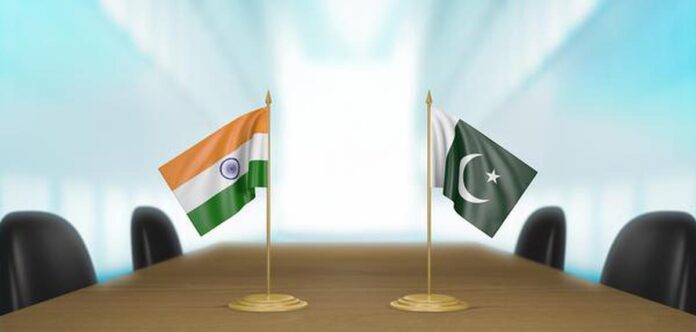Author: Sardar Masood Khan
Affiliation: President, Azad Jammu and Kashmir
Organization/Publisher: Narratives
Date/Place: June 18, 2021 / Karachi, Pakistan
Type of Literature: Analysis
Word Count: 4,200
Link: https://narratives.com.pk/thinktank/the-quest-for-peace/
Keywords: Kashmir, India, Pakistan, Peace, Resolution
Brief:
This analysis is by the sitting president of Azad Jammu and Kashmir – the liberated territory of Indian-occupied Kashmir. Before assuming charge as the 27th president of the liberated territory in 2016, Sardar Masood Khan represented Pakistan as a diplomat with expertise in disarmament and on China. This analysis draws the demography of birth of two independent states – Pakistan and India – in 1947 after the British were forced out of the sub-continent. Tumultuous bilateral relations between the two countries followed, with a vast majority of Hindu-majority India not reconciling with the fact that Muslims carved out a separate homeland for themselves. The partition was inevitable, the author argues, since the Muslims’ demand “to get adequate or proportional representation in the quasi-democratic system that was being evolved, under the British tutelage, in the provinces and the center, but their proposals were either quashed or sabotaged.” After drawing attention to historic miscalculations viz-a-viz India on Kashmir and Pakistan itself, President Khan warns of any fresh engagement with India without taking lessons from the past. His concern is shared by the vast majority in Indian-occupied Kashmir, given the fact that what India has done since 1947 is grabbing the occupied territory, illegally and militarily, and delaying the UN-promised resolution, i.e. the holding of a plebiscite to allow people living in Jammu and Kashmir region which region existed before the partition of the sub-continent. The author makes a strong proposition for decoupling Pakistan’s economic issues from the battle for Kashmir. He rather shows the mirror to the policy makers and the general public: “Show me any specific allocation of resources for Kashmir in our budget. Kashmir cannot be artificially and thoughtlessly linked to the overall defence budget which remains a constant for effective security of the entire state and will continue to grow, with or without Kashmir.” The other important assessment by President Khan is regarding the 1972 Simla Agreement between India and Pakistan and the 1999 Lahore Accord. “The first put a weapon in the hands of India to claim that Kashmir was a bilateral issue, not an international issue and the second was used by India to legitimise the ‘sanctity’ of the Line of Control,” he points out, exposing it as the biggest challenge to Pakistan’s diplomacy on Kashmir.
By: Riyaz ul Khaliq, CIGA Non-resident Research Associate




